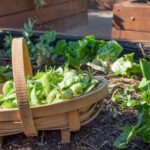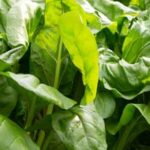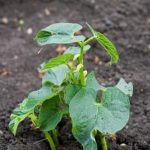Are you looking for a natural and effective way to protect your vegetable garden from harmful insects? In this article, we will explore how to make insecticide with neem oil for vegetable gardens. Neem oil is a powerful and versatile tool in organic gardening, offering numerous benefits for the health and vitality of your plants.
Neem oil is derived from the seeds of the neem tree, which is native to India. It has been used for centuries in traditional medicine and agriculture due to its insecticidal properties. In addition to repelling and killing harmful insects, neem oil also acts as a fungicide and has been shown to improve the overall health of plants.
Understanding the harmful insects that can wreak havoc on your vegetable garden is crucial for effective pest management. Aphids, caterpillars, mites, and beetles are just a few examples of pests that can damage crops and reduce yields. Using natural insecticides like neem oil not only helps control these pests but also minimizes the negative impact on beneficial insects like bees and ladybugs.
Understanding the Harmful Insects in Vegetable Gardens
Vegetable gardens can be easily invaded by a variety of harmful insects that can quickly damage crops if not controlled. Some of the most common destructive pests in vegetable gardens include aphids, caterpillars, flea beetles, and spider mites. These insects feed on the leaves, stems, and fruits of vegetable plants, leading to stunted growth and reduced yields. Additionally, some pests like whiteflies and thrips can transmit diseases from one plant to another, further compromising the health of the entire garden.
It is important for gardeners to be able to identify these harmful insects in order to effectively control them. Regular inspection of plants for signs of insect activity such as holes in leaves, discoloration, wilting, or presence of eggs can help in early detection and prompt action. By understanding the specific types of pests that are common in their region and knowing their life cycles, gardeners can implement targeted measures to prevent infestations before they become unmanageable.
Incorporating natural insecticides like neem oil into a pest management plan can help reduce or eliminate damage caused by harmful insects without harming beneficial ones such as pollinators and predators of pest insects. Understanding the harmful insects in vegetable gardens is crucial for successful gardening and preserving crop health. By using this knowledge along with natural insecticides like neem oil, gardeners can achieve a thriving garden while minimizing negative impacts on the environment.
| Harmful Insects | Effects on Vegetables |
|---|---|
| Aphids | Damage leaves and transmit viruses |
| Caterpillars | Feed on foliage and fruits |
| Flea Beetles | Cause small holes in leaves leading to wilting |
| Spider Mites |
Importance of Using Natural Insecticides for Vegetable Gardens
Neem oil is a natural insecticide that has been used for centuries to protect plants, including vegetables, from harmful pests. Its effectiveness in controlling insects without harming the environment or beneficial insects makes it an important tool for gardeners who want to keep their vegetable gardens healthy and thriving. Choosing natural insecticides like neem oil over synthetic chemicals is vital for maintaining the balance of the ecosystem in your garden.
The use of natural insecticides in vegetable gardens is crucial because it helps prevent the negative impact of synthetic chemicals on the environment and human health. Conventional insecticides often contain toxic compounds that can leach into the soil, contaminate water sources, and harm non-target organisms. In contrast, natural insecticides derived from plant-based ingredients are biodegradable and pose minimal risk to beneficial organisms such as bees, butterflies, and earthworms.
By using natural insecticides like neem oil, gardeners contribute to the preservation of biodiversity in their vegetable gardens. Synthetic chemicals have been associated with disrupting ecosystems by eliminating beneficial insects and creating imbalances in the food chain. Neem oil targets harmful pests while leaving beneficial insects unharmed, thus promoting a healthier and more naturally sustainable garden environment.
| Neem Oil as a Natural Insecticide | Insecticide Benefits |
|---|---|
| Controls harmful pests | Protects beneficial insects |
| Biodegradable and eco-friendly | Minimizes environmental impact |
How Neem Oil Works as an Insecticide
Neem oil is a natural and effective insecticide that can be used in vegetable gardens to control and repel harmful insects. Neem oil works by disrupting the feeding, mating, and egg-laying behavior of insects, ultimately leading to their demise. Here’s how neem oil works as an insecticide:
1. Disruption of Insect Growth: Neem oil contains compounds that interfere with the hormonal system of insects, preventing their proper growth and development. This disruption affects the ability of larvae to mature into adult insects, thus reducing their population in the garden.
2. Repellent Properties: In addition to its impact on insect growth, neem oil acts as a repellent for a wide range of pests commonly found in vegetable gardens. When sprayed on plants, neem oil creates a protective barrier that deters insects from feeding on the leaves and fruits.
3. Antifeedant Effects: Neem oil also acts as an antifeedant, causing insects to lose interest in consuming plant tissues treated with the oil. This effect reduces damage caused by pests and prevents the spread of diseases carried by feeding insects.
When making insecticide with neem oil for your vegetable garden, it’s important to understand how these mechanisms work in order to maximize its effectiveness in controlling harmful insects. By incorporating neem oil into your pest control routine, you can promote healthy plant growth while minimizing the use of synthetic chemicals in your garden.
Step-by-Step Guide on Making Insecticide With Neem Oil
Neem oil is a natural and effective insecticide that can help protect your vegetable gardens from harmful pests. Making your own insecticide with neem oil is an easy and cost-effective way to keep your plants healthy and thriving. By following this step-by-step guide, you can create a powerful insecticide that will not only repel harmful insects but also nourish your plants.
Ingredients You Will Need
To make insecticide with neem oil, you will need the following ingredients:
- Pure neem oil
- Mild liquid soap
- Water
These simple ingredients are all you need to create a potent insecticide that is safe for use on your vegetable plants.
Instructions for Making Neem Oil Insecticide
- In a spray bottle, mix 2 teaspoons of neem oil with 1 teaspoon of mild liquid soap.
- Add the mixture to 1 quart of warm water in the spray bottle.
- Shake the spray bottle well to ensure that the neem oil and soap are thoroughly mixed with the water.
- Your homemade neem oil insecticide is now ready to be used on your vegetable gardens.
Following these simple instructions will allow you to create an effective insecticide that can protect your plants from harmful pests without using any harsh chemicals.
Benefits of Using Neem Oil Insecticide
Not only is neem oil insecticide effective at repelling harmful insects, but it also has additional benefits for your vegetable gardens. Neem oil acts as a natural fungicide and can help prevent fungal diseases that may affect your plants. Additionally, it is safe for beneficial insects such as bees and ladybugs, making it an environmentally friendly choice for pest control in your garden.
Tips for Proper Application of Neem Oil Insecticide
Proper application of neem oil insecticide is crucial to ensure its effectiveness in controlling harmful insects in vegetable gardens. Here are some tips for the correct and effective use of neem oil as an insecticide:
- Dilute the neem oil: Neem oil is highly concentrated, so it should be diluted before use. Mix the required amount of neem oil with water and a small amount of liquid soap to make it easier to mix and adhere to the plant’s foliage.
- Timing of application: The best time to apply neem oil insecticide is in the early morning or late afternoon when the sun is not too intense. Avoid applying it in direct sunlight, as this can cause the leaves to burn.
- Complete coverage: Thoroughly spray the neem oil solution on both sides of the plant’s leaves, stems, and other affected areas. Ensure complete coverage to effectively target harmful insects and their eggs.
Additionally, it is essential to reapply the neem oil solution after heavy rainfall or irrigation, as these can wash away the protective layer of the oil from the plants. Following these tips for proper application will maximize the benefits of using neem oil as a natural insecticide in vegetable gardens.
Overall, proper application of neem oil insecticide will not only protect your vegetable garden from harmful insects but also contribute to maintaining a healthy and thriving garden environment. By following these tips, you can effectively harness the power of neem oil as a natural and sustainable solution for pest control in your vegetable garden.
Precautions and Safety Measures When Using Neem Oil Insecticide
Protective Gear
When using neem oil as an insecticide in your vegetable garden, it is important to protect yourself from any potential exposure. This can be achieved by wearing appropriate protective gear such as gloves, long-sleeved shirts, long pants, and closed-toe shoes. In addition, using goggles or a face mask can prevent accidental contact with the eyes or inhalation of the neem oil.
Timing of Application
It is crucial to apply neem oil insecticide at the right time to ensure its effectiveness and minimize potential harm to beneficial insects. The best time to apply neem oil is in the early morning or late afternoon when temperatures are cooler. Avoid applying neem oil during the heat of the day to prevent leaf burn and evaporation of the oil.
Storage and Disposal
Proper storage of neem oil is essential for maintaining its effectiveness and preventing accidents. Store neem oil in its original container in a cool, dry place away from direct sunlight and extreme temperatures. When disposing of unused neem oil or empty containers, follow local regulations for hazardous waste disposal to protect the environment.
These precautions and safety measures are important considerations when using neem oil insecticide in your vegetable garden. By following these guidelines, you can protect yourself, your plants, and the environment while effectively controlling harmful insects without resorting to synthetic chemical pesticides.
Alternative Natural Insecticides for Vegetable Gardens
When it comes to protecting your vegetable garden from pests, neem oil is not the only natural option available. There are several alternative natural insecticides that can be effective in keeping harmful insects at bay. One popular option is diatomaceous earth, which is made from the fossilized remains of tiny, aquatic organisms called diatoms. This substance works by absorbing lipids from the waxy outer layer of insects, causing them to dehydrate and die.
Another natural insecticide to consider is pyrethrin, which is derived from the chrysanthemum flower. It works by targeting the nervous systems of insects, paralyzing them and eventually leading to their death. Pyrethrin is known for its fast-acting nature and low toxicity to humans and other mammals.
For gardeners looking for a more DIY approach, garlic oil spray can be an effective natural insecticide. This mixture can be made at home by blending garlic bulbs with water and then straining the liquid into a spray bottle. Garlic oil spray works by repelling insects due to its strong scent, making it an ideal option for organic gardening enthusiasts.
Conclusion and Recap of the Benefits of Using Neem Oil as an Insecticide for Vegetable Gardens
In conclusion, neem oil is a highly effective natural insecticide that offers numerous benefits for vegetable gardens. Not only does it effectively control harmful insects, but it also has minimal impact on beneficial insects, making it an environmentally friendly choice. Neem oil is also safe to use around pets and children, reducing the risks associated with traditional chemical pesticides. Its versatility and ease of use make it a popular choice for gardeners looking for an alternative to harsh chemicals.
When making insecticide with neem oil, it is important to follow the step-by-step guide provided to ensure proper application. By using neem oil in conjunction with other natural insecticides, gardeners can create a comprehensive pest control plan that minimizes the risk of resistance development in insects. Additionally, taking precautions and safety measures when using neem oil will help protect both the plants and the individuals applying the insecticide.
Overall, neem oil is a valuable tool for maintaining a healthy and thriving vegetable garden. Its ability to combat harmful insects while preserving beneficial ones makes it an ideal choice for those looking to minimize environmental impact. Considering its numerous benefits and easy application process, incorporating neem oil as an insecticide into your gardening routine may be a decision you won’t regret.
Frequently Asked Questions
How Do You Make Neem Oil Spray for Vegetable Gardens?
To make neem oil spray for vegetable gardens, start by mixing a small amount of mild liquid soap with neem oil in a spray bottle. Then, add water and shake the mixture well to combine the ingredients. The neem oil spray can then be applied to the vegetable plants, focusing on the undersides of leaves where pests tend to hide.
How Do You Make Neem Oil as a Pesticide?
Making neem oil as a pesticide involves diluting pure neem oil with water and a small amount of mild liquid soap to create a solution that can be sprayed onto plants. Neem oil acts as a natural insecticide and fungicide, effectively controlling pests while being safe for beneficial insects like bees.
How Do I Make Bug Spray for My Vegetable Garden?
Creating bug spray for a vegetable garden can be done using natural ingredients like garlic, hot peppers, and onions. These ingredients are blended together with water and strained through cheesecloth to create a concentrated solution that can repel insects from vegetable plants when sprayed onto the foliage. This homemade bug spray is an eco-friendly alternative to chemical pesticides.

If you’re looking to get into vegetable gardening, or are just looking for some tips on how to make your current garden better, then you’ve come to the right place! My name is Ethel and I have been gardening for years. In this blog, I’m going to share with you some of my best tips on how to create a successful vegetable garden.





